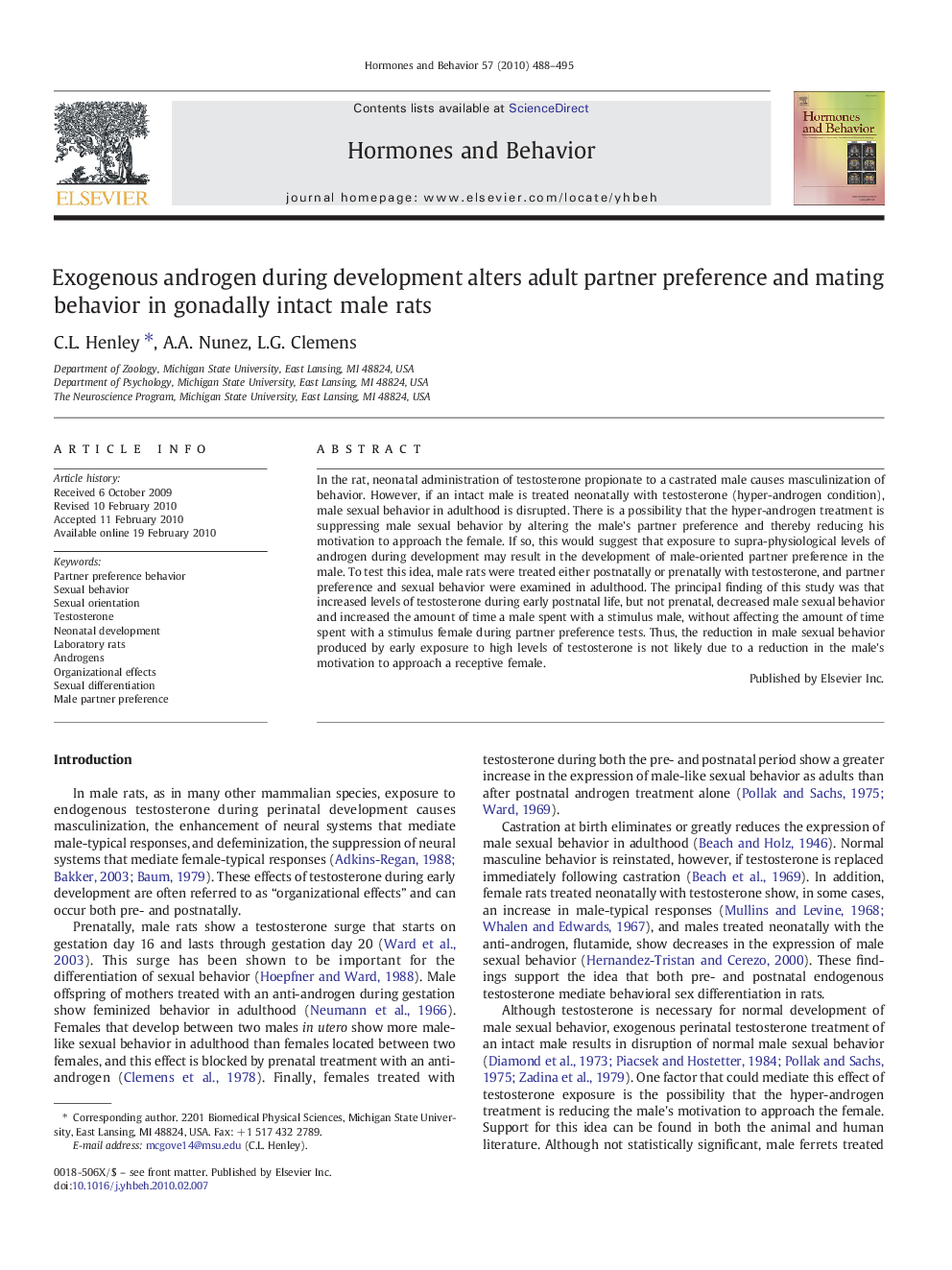| Article ID | Journal | Published Year | Pages | File Type |
|---|---|---|---|---|
| 324118 | Hormones and Behavior | 2010 | 8 Pages |
In the rat, neonatal administration of testosterone propionate to a castrated male causes masculinization of behavior. However, if an intact male is treated neonatally with testosterone (hyper-androgen condition), male sexual behavior in adulthood is disrupted. There is a possibility that the hyper-androgen treatment is suppressing male sexual behavior by altering the male's partner preference and thereby reducing his motivation to approach the female. If so, this would suggest that exposure to supra-physiological levels of androgen during development may result in the development of male-oriented partner preference in the male. To test this idea, male rats were treated either postnatally or prenatally with testosterone, and partner preference and sexual behavior were examined in adulthood. The principal finding of this study was that increased levels of testosterone during early postnatal life, but not prenatal, decreased male sexual behavior and increased the amount of time a male spent with a stimulus male, without affecting the amount of time spent with a stimulus female during partner preference tests. Thus, the reduction in male sexual behavior produced by early exposure to high levels of testosterone is not likely due to a reduction in the male's motivation to approach a receptive female.
